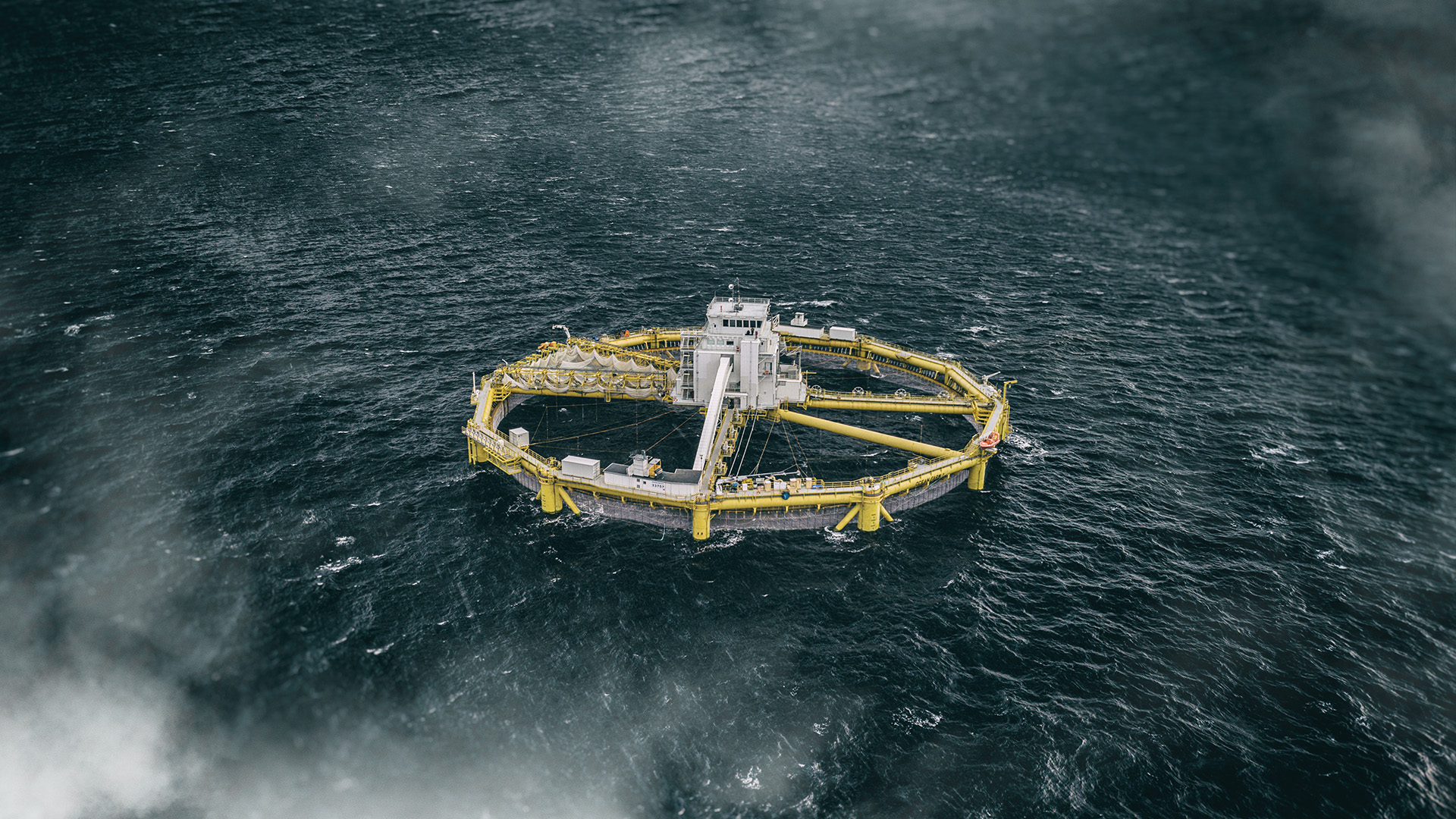

Today, the world’s population uses more resources than the Earth can regenerate, and food production accounts for a significant part of humanity’s climate and environmental footprint. A growing global population therefore demands new ways of producing food, while we must also minimize our environmental impact. About 70% of the planet is covered by water, yet less than 2% of the food supply comes from the ocean. As a result, seafood is becoming increasingly important.
SalMar Aker Ocean works to minimize environmental impact in the areas where we farm, and to reduce our overall climate and environmental footprint. This includes operating in locations with favorable environmental conditions. We actively optimize feeding and minimize feed waste by implementing new technology. Additionally, we are working to reduce our energy consumption.
Although food production is a major contributor to global greenhouse gas emissions, salmon farming is considered one of the most environmentally friendly methods of food production. Compared to other protein sources, the CO2 footprint of salmon is significantly lower.
SalMar Aker Ocean is part of the SalMar group and is therefore included in SalMar’s sustainability reporting. See link: SalMar’s annual report. Here you can read more about how SalMar works with sustainability.
GHG emissions (CO2-eq) per kg
edible meat Salmon vs other proteins

Kilde: Mowi Industry Handbook 2024